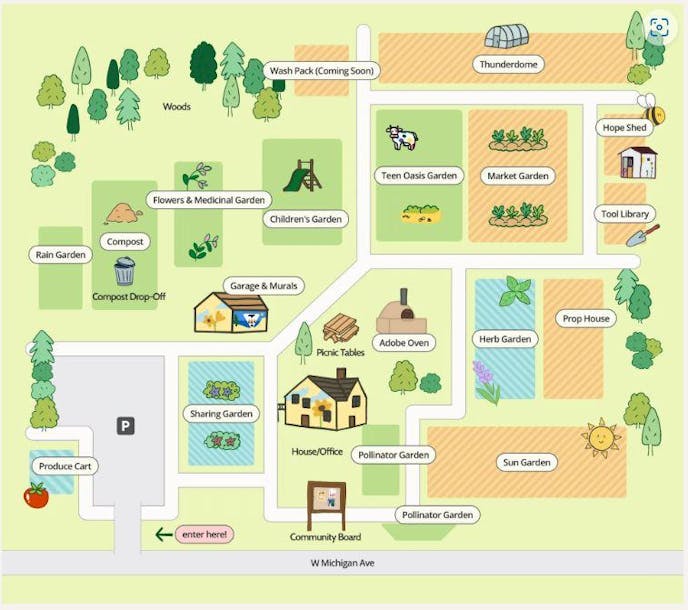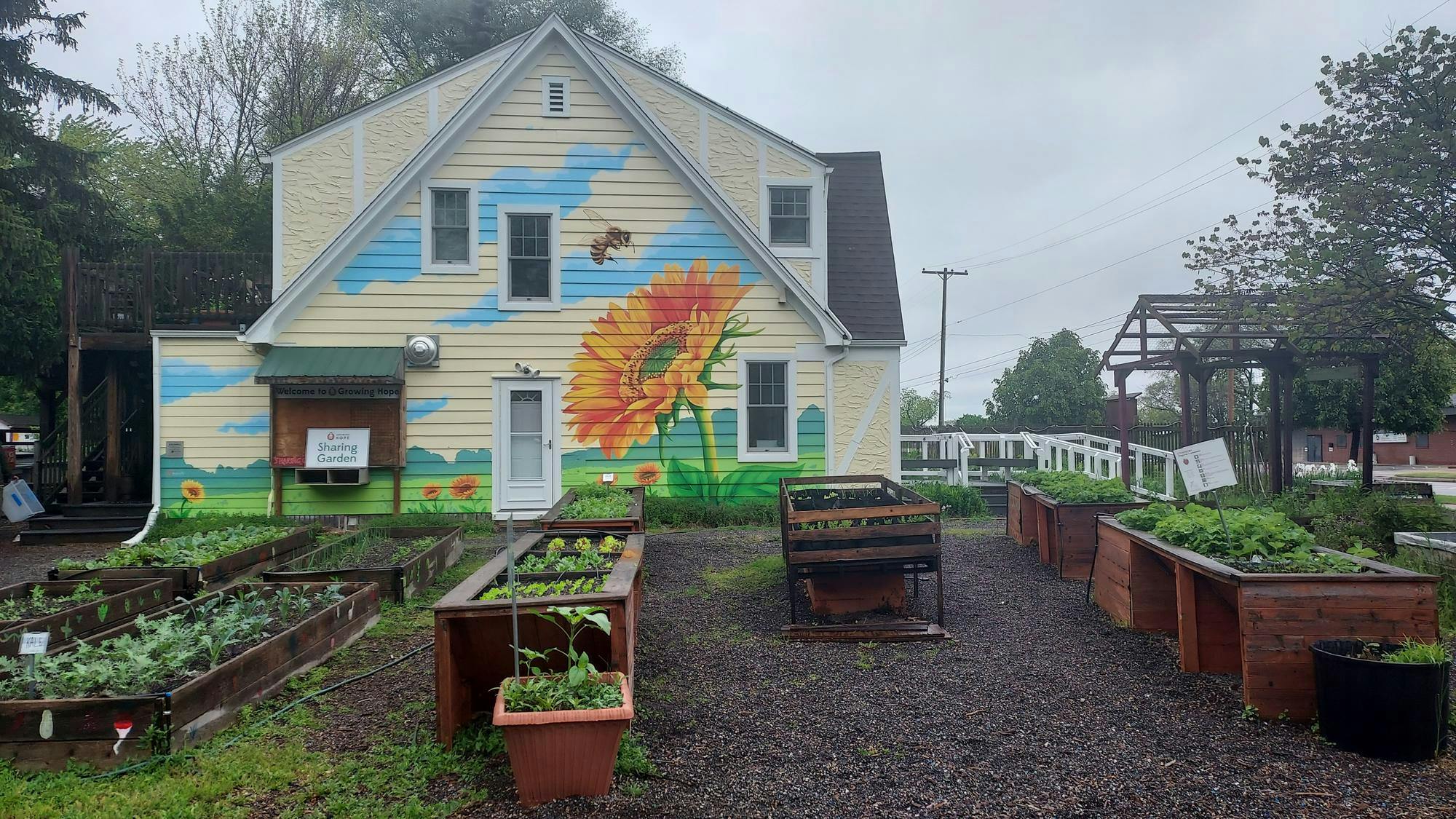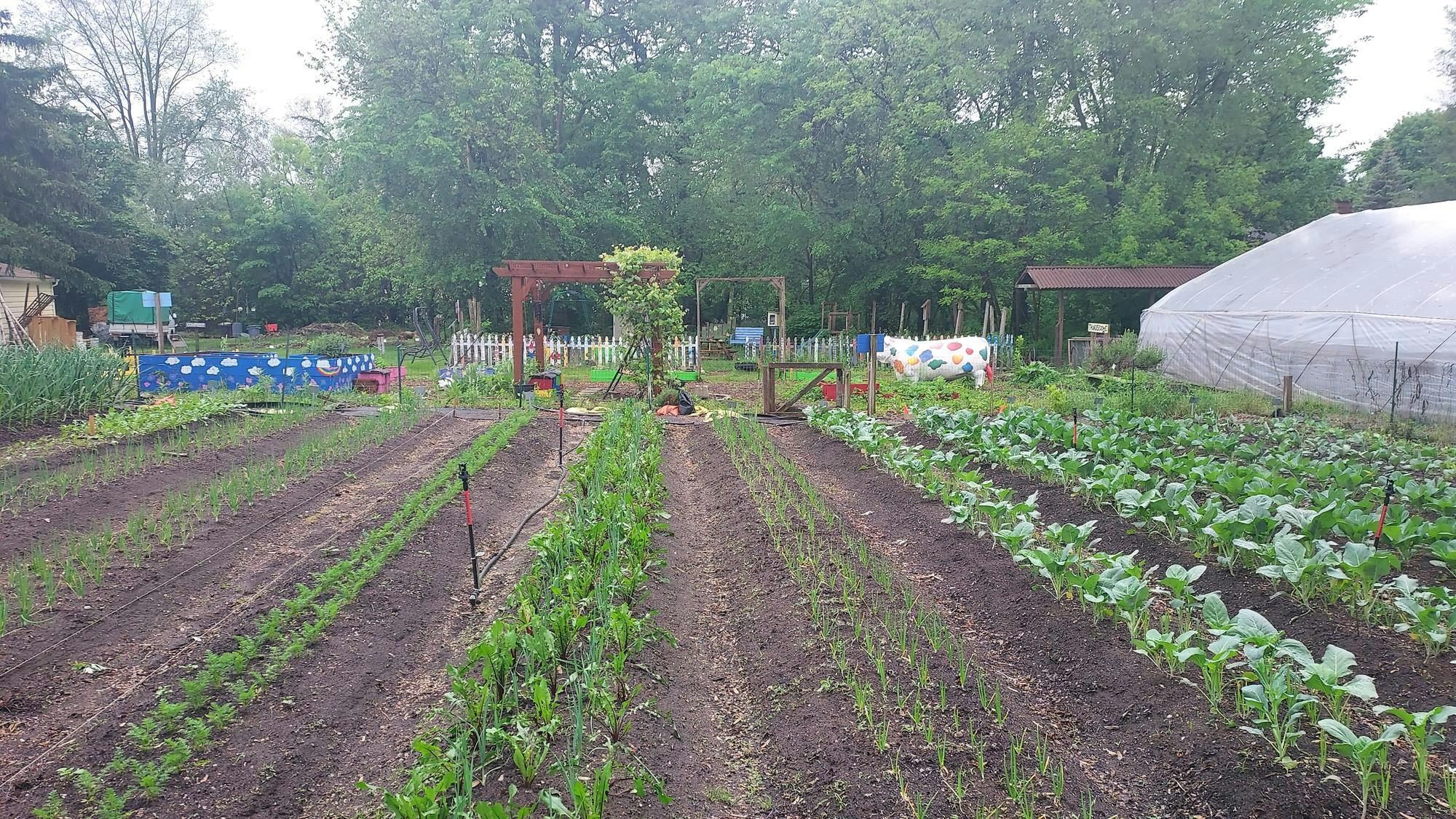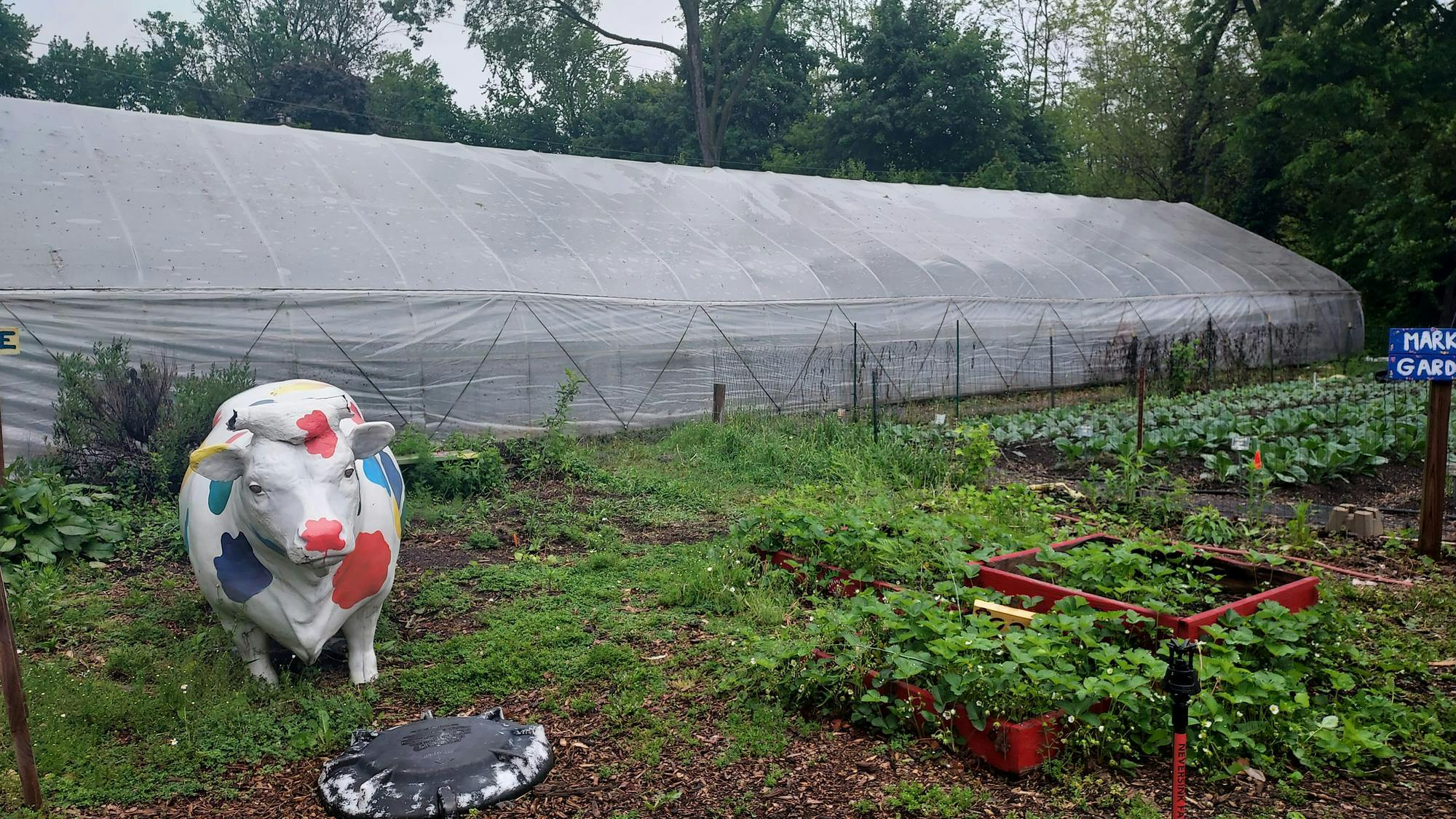Riding along West Michigan Avenue just before turning onto First Avenue, drivers pass a lot filled with greenery and colorful buildings, one bearing an oversized sunflower.
Managed by volunteers, the lot is a small farm, where a group called Growing Hope encourages people to gather and grow their own food. Since 2003, the nonprofit organization has grown hope among the local community through local food production. The farm is a place where working-class families can have a small plot and assistance in tending their gardens. The farm also grows fruits and vegetables that are then sold at the Ypsilanti Farmers MarketPlace.
Claire Austin is an organizer at Growing Hope and the manager at the Farmers MarketPlace.
“Growing Hope operates the farmers market," Austin said, adding that after many changes of locations and day transitions for operating, the market is now open Saturdays.

Claire Austin, pictured here at the Growing Hope farm on Michigan Avenue in May 2025, manages the Farmers MarketPlace for a nonprofit urban farm and is also one of its organizers. Behind Austin is the door to the storage, where Growing Hope keeps tools gardeners can borrow.
Growing Hope expanded its activity into the Farmers Market of Ypsilanti in 2006. The Ypsilanti Farmers MarketPlace is at 16 South Washington St. in downtown Ypsilanti. The Ypsilanti Farmers Market offers shopping from local vendors. Beyond finding fresh herbs or fruits, the market provides opportunities to meet other people in town. Both Growing Hope and the market work with local farms and businesses.
Growing Hope with vegetables:
At the farm, a larger-than-life-sized painted sunflower covering the front of a two-story farmhouse greets visitors as they enter the parking lot. Beyond the house, a line of shrubs marks an area of dark soil and verdant hues. Over in the corner, a blue-and-orange spotted cow sculpture watches over the vegetables.
Operating near the core of the city, Growing Hope offers harvesting-inspired programs for the public.
The farm includes a number of features, from a children's garden, to an area for herbs and compost area to a pizza oven. The different areas of the farm are features in this Growing Hope Interactive Map found on the organization's website.

An interactive map of the farm in Ypsilanti is posted on the Growing Hope website.
“The idea is to teach you how to grow your own food so that you can sustain yourself,” Austin said.

Raised garden beds are lined up in front of a two-story farmhouse along Michigan Avenue in Ypsilanti in May 2025. The farmhouse serves as the headquarters for Growing Hope, a nonprofit urban farming operation that promotes a sustainable, local food system.
Participants who join Growing Hope as part of the gardening program are assigned a garden bed and receive seedlings from a seed library, as well as directions on how to take care of the plants.
Everything the gardener needs to “get going and get growing" is available, Austin said, explaining what Growing Hope offers.

The farm also provides tools that gardeners can borrow for harvesting and composting. Growing Hope also assists people who want to start their small food businesses, with access to an affordable licensed kitchen.

Behind the colorful cow on the Growing Hope urban farm in Ypsilanti, there is a greenhouse where gardeners cultivate indoor plants. Near downtown Ypsilanti, the farm organization focuses on helping people grow their own food.
Pausing several times during a tour of the farm to answer questions from staff, Austin said Growing Hope offers all of those services at no charge.
“It is a completely free community resource," Austin said. "We're providing you with all the things that you need to get started and learn, helping you to learn those just fundamental basics ... like when to plant certain things in the spring, how to water your garden, how to do pest management without putting pesticides on your food so that you'll hopefully be able to continue to sustain yourself, and just and your garden like over time.”
Another program shared online is the Teen Leadership Program. The program offers youth opportunities to learn and lead by acquiring knowledge about sustainable farming and healthy food. The participants should be from the area around Ypsilanti. According to farm's website, “Youth are paid $13 per hour for their work.”
Austin recommended and encouraged potential applicants to apply for the teen program in advance because Growing Hope takes as many people as they have space. The application is available online, and people can also go to the farm.
Upcoming events & opportunities:
The Ypsi Farmers MarketPlace will host events during the summer. Families, friends and students are welcome. The community resource fair will be July 26, 2025, and visitors will be able to find fresh and local produce from local small businesses.
The farmers market week celebration occurs Aug. 9. The event includes prizes, coupons, and an informational event on food safety.
Austin said students who might face economic challenges can find Growing Hope as a place to reduce food costs.
Students who are interested in an internship are welcome to apply by contacting Growing Hope.
“That's a good time to come and learn what's already here, especially if you're going to EMU, and having access to food is difficult a lot of times. So, you want to tap in now and learn about that,” Austin said.










